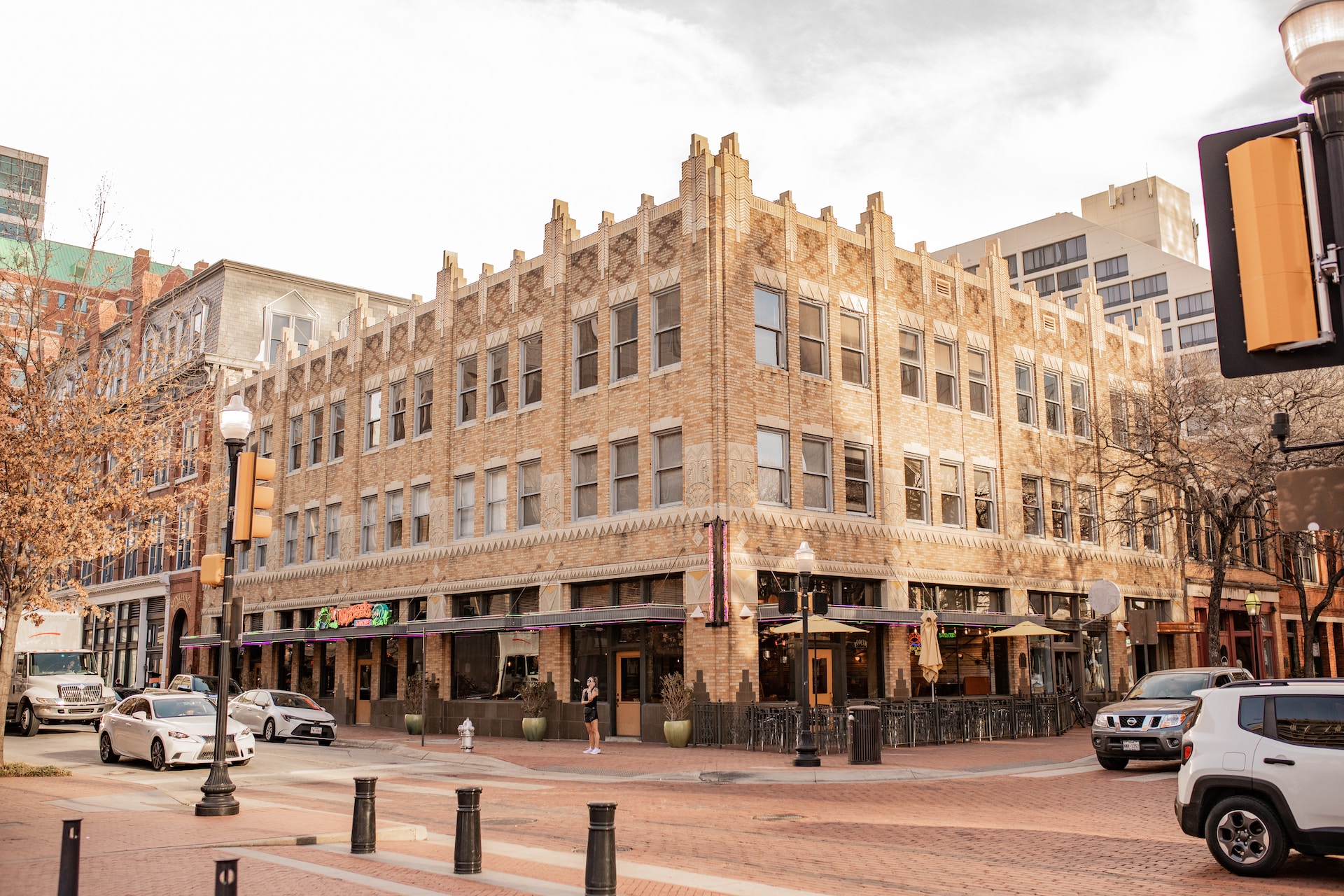Welcome to the vibrant city of Fort Worth, Texas! Known as the “City of Cowboys and Culture,” Fort Worth offers a unique blend of Western heritage, cultural attractions, and a thriving business community. With its rich history, friendly atmosphere, and range of recreational activities, Fort Worth is an appealing destination for those seeking a balance between a vibrant city lifestyle and a relaxed, Western ambiance. Whether you’re drawn to the city’s cowboy culture, world-class museums, or outdoor adventures, this moving guide will provide you with essential information to make your relocation to the captivating city of Fort Worth a smooth and enjoyable experience.
Pros and Cons of Living in Fort Worth:
Living in Fort Worth comes with its own set of pros and cons. On the positive side, Fort Worth boasts a lower cost of living compared to many other major cities in Texas and the United States. Housing costs, including rent and home prices, are generally more affordable, providing a range of options for residents. Fort Worth embraces its Western heritage, offering opportunities to experience cowboy culture, attend rodeos, and explore the Stockyards National Historic District. The city is home to a vibrant arts scene, with world-class museums, galleries, and a thriving music and theater community. However, it’s important to note that Fort Worth’s public transportation system is not as extensive as in some larger cities, so having a car is often necessary for convenient travel. While Fort Worth offers a mix of urban and suburban areas, some neighborhoods may have limited walkability. Nevertheless, the city’s friendly atmosphere, cultural offerings, and economic opportunities make Fort Worth an attractive place to call home.
Tax Rates in Fort Worth:
When it comes to taxes in Fort Worth, Texas, it’s important to note that the state has no individual income tax. This means that residents of Fort Worth do not pay state income tax on their earnings. However, Texas compensates for this by relying on other sources of revenue, such as property taxes and sales taxes. Property taxes in Fort Worth can vary depending on the specific location within the city. It’s advisable to understand the local tax rates, exemptions, and assessment processes when considering housing options. Consulting with a tax professional or referring to the official tax authorities will provide you with the most accurate and up-to-date information regarding tax rates and any specific deductions or credits that may apply to your situation.
Cost of Living in Fort Worth:
Fort Worth offers a relatively affordable cost of living compared to many other major cities in Texas and the United States. Housing costs, including rent and home prices, are generally lower, providing residents with more affordable options. Other expenses, such as groceries, dining out, and entertainment, are also typically more budget-friendly. Fort Worth offers a range of neighborhoods and suburbs to suit different preferences and lifestyles, from historic districts to family-oriented communities and new developments. It’s important to consider factors such as proximity to employment, desired amenities, and school districts when selecting a neighborhood. Overall, Fort Worth strikes a favorable balance between a lower cost of living and access to cultural attractions, outdoor recreation, and economic opportunities.
Public Transportation in Fort Worth:
Fort Worth offers a public transportation system to help residents and visitors navigate the city. The Fort Worth Transportation Authority, known as “The T,” operates bus services throughout the city and surrounding areas. The bus system provides coverage to various neighborhoods and major employment centers, offering a convenient mode of transportation for those without a car. Additionally, the Trinity Railway Express (TRE) commuter train connects Fort Worth to downtown Dallas, providing an alternative option for commuting between the two cities. While public transportation options are available, it’s important to note that Fort Worth is a sprawling city, and having a car can provide greater flexibility, especially for those living in the suburbs or needing to commute longer distances.
Traffic and Transportation in Fort Worth:
Fort Worth’s traffic situation can vary depending on the time of day and specific areas of the city. The city’s growth and development have led to increased traffic congestion, particularly during peak commuting hours and in major thoroughfares. However, Fort Worth has implemented infrastructure improvements and road expansion projects to address traffic challenges. The city also continues to invest in public transportation initiatives to provide more options for residents. To navigate traffic more efficiently, it’s advisable to plan travel routes in advance, utilize navigation apps for real-time traffic updates, and consider alternative transportation options such as carpooling or utilizing public transportation when possible. Despite traffic challenges, Fort Worth’s welcoming community, cultural offerings, and economic opportunities make it an enticing place to live and work.
Weather and Natural Disasters in Fort Worth:
Fort Worth experiences a humid subtropical climate, characterized by hot summers and mild winters. Summers can be hot and humid, with temperatures regularly exceeding 90°F (32°C). Winters are generally mild, with temperatures ranging from the 40s to 60s Fahrenheit (4-16 degrees Celsius). Fort Worth is located in Tornado Alley, which means the city is susceptible to severe weather events such as tornadoes and severe thunderstorms. It’s important to stay informed about weather alerts, have an emergency plan in place, and follow safety protocols when necessary. Fort Worth has well-developed disaster response systems and emergency management protocols to ensure public safety. Being prepared and staying vigilant during severe weather occurrences will help residents navigate any potential weather challenges.
The Job Market in Fort Worth:
Fort Worth offers a diverse and thriving job market with opportunities in various industries. The city’s economy is driven by sectors such as healthcare, education, government, finance, and manufacturing. Fort Worth is home to major corporations and headquarters, including companies in the aerospace, defense, and aviation industries. The city also has a robust healthcare sector, with several hospitals and medical centers providing employment opportunities. Additionally, Fort Worth’s proximity to Dallas offers access to a broader range of job opportunities across the Dallas-Fort Worth metroplex. Networking, utilizing online job platforms, and connecting with industry-specific organizations can help individuals tap into the city’s diverse employment landscape and explore career prospects.
Diversity and Demographics in Fort Worth:
Fort Worth is a diverse city that embraces its cultural heritage and celebrates its residents’ different backgrounds. The city’s demographics encompass a wide range of ethnicities, including a significant Hispanic and Latino population. Fort Worth’s diverse community is reflected in its cultural events, festivals, and culinary offerings. The city provides opportunities for residents to explore and appreciate various cultures, contributing to a rich and inclusive environment. Fort Worth’s welcoming atmosphere and commitment to diversity make it an inviting place for individuals and families from all walks of life.
What to Do and Where to Go in Fort Worth:
Fort Worth offers a wealth of attractions and activities to suit diverse interests. Visit the historic Fort Worth Stockyards, where you can experience the city’s cowboy culture, witness cattle drives, and enjoy live rodeo performances. Explore the Cultural District, home to world-class museums such as the Kimbell Art Museum, the Modern Art Museum of Fort Worth, and the Amon Carter Museum of American Art. Enjoy outdoor activities at the Fort Worth Botanic Garden, Trinity Trails, or the Fort Worth Nature Center and Refuge. Indulge in the city’s culinary scene, which ranges from Tex-Mex and barbecue to international cuisine and farm-to-table offerings. Fort Worth also hosts a variety of events and festivals throughout the year, including the Fort Worth Stock Show & Rodeo and the Main St. Arts Festival. From lively entertainment districts to charming historic neighborhoods, Fort Worth offers a blend of Western heritage, cultural experiences, and recreational opportunities.
Schools and Universities in Fort Worth:
Fort Worth provides a range of educational options, including public, private, and charter schools. The Fort Worth Independent School District (FWISD) serves the majority of the city’s public school students, offering a variety of academic programs and extracurricular activities. Fort Worth is also home to several esteemed universities and colleges. Texas Christian University (TCU), a private university known for its strong academic programs and athletic achievements, is located in Fort Worth. The city is also home to Texas Wesleyan University, a private university with a focus on liberal arts education. Additionally, Fort Worth is within close proximity to other renowned higher education institutions in the Dallas-Fort Worth metroplex, providing residents with a variety of educational opportunities.
Moving to Fort Worth:
Moving to Fort Worth offers an exciting opportunity to immerse yourself in a city known for its Western charm, cultural offerings, and friendly community. It’s essential to plan your move carefully, considering factors such as housing options, transportation, and desired neighborhoods. Researching different neighborhoods and understanding their distinct characteristics can help you find the perfect place to call home in this vibrant city. Embrace the Western spirit, explore the city’s attractions, and enjoy the warm hospitality of Fort Worth as you embark on your new chapter in this captivating city.




